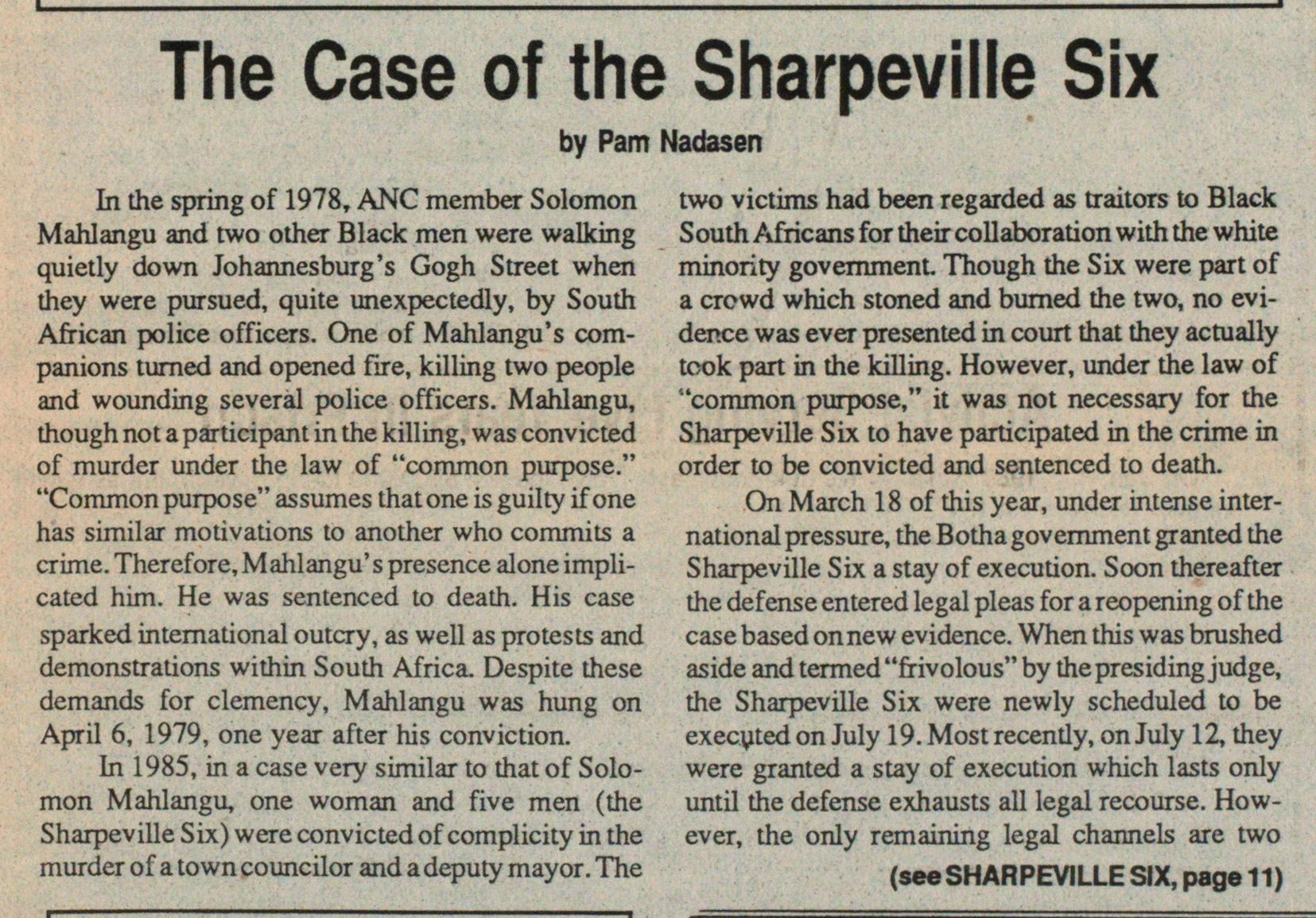The Case Of The Sharpeville Six


In the spring of 1978, ANC member Solomon Mahlangu and two other Black men were walking quietly down Johannesburg's Gogh Street when they were pursued, quite unexpectedly, by South African police officers. One of Mahlangu's companions turned and opened fire, killing two people and wounding several police officers. Mahlangu, though not a participant in the killing, was convicted of murder under the law of "common purpose." "Common purpose" assumes that one is guilty if one has similar motivations to another who commits a crime. Therefore, Mahlangu's presence alone implicated him. He was sentenced to death. His case sparked international outcry, as well as protests and demonstrations within South Africa. Despite these demands for clemency, Mahlangu was hung on April 6, 1979, one year after his conviction.
In 1985, in a case very similar to that of Solomon Mahlangu, one woman and five men (the Sharpeville Six) were convicted of complicity in the murder of a town councilor and a deputy mayor. The two victims had been regarded as traitors to Black South Africans for their collaboration with the white minority govemment. Though the Six were part of a crowd which stoned and burned the two, no evidence was ever presented in court that they actually took part in the killing. However, under the law of "common purpose," it was not necessary for the Sharpeville Six to have participated in the crime in order to be convicted and sentenced to death.
On March 18 of this year, under intense international pressure, the Botha government granted the Sharpeville Six a stay of execution. Soon thereafter the defense entered legal pleas for a reopening of the case based on new evidence. When this was brushed aside and termed "frivolous" by the presiding judge, the Sharpeville Six were newly scheduled to be executed on July 19. Most recently, on July 12, they were granted a stay of execution which lasts only until the defense exhausts all legal recourse. However, the only remaining legal channels are two which have already been tried with no success: an appeal to reopen the trial and an appeal to Botha for clemency.
Locally and globally, people from all ends of the political spectrum have united around the issue of clemency for the Sharpeville Six. Despite calls for reprieve from wellknown allies of the South African government, Margaret Thatcher and Ronald Reagan, President P.W. Botha remains intransigent in his decision not to intervene on the Six's behalf.
If the execution of the Sharpeville Six does occur, the likely result will be an escalation of the resistance struggle of Black South Africans. Solomon Mahlangu (for whom the ANC Freedom College in Tanzania is named) and the Sharpeville Six notonly symbolize the brutality of the fascist South African government, but serve as inspiration for the courageous and determined resistance of Black South Africans. Their determination has not lessened, but has become stronger to meet the ever more repressive conditions. Through underground, banned organizations (such as the ANC), Black South Africans have coordinated, over the last few years, the most successful school boycotts and work strikes in their history. They have brought international attention and support to their struggle. With this courage and spirit, the struggle for liberation in Southern Africa will ultimately prevail.
Pam Nadasen attends the University of Michigan and is a member of the Free South Africa Coordinating Committee and the United Coalition Against Racism.